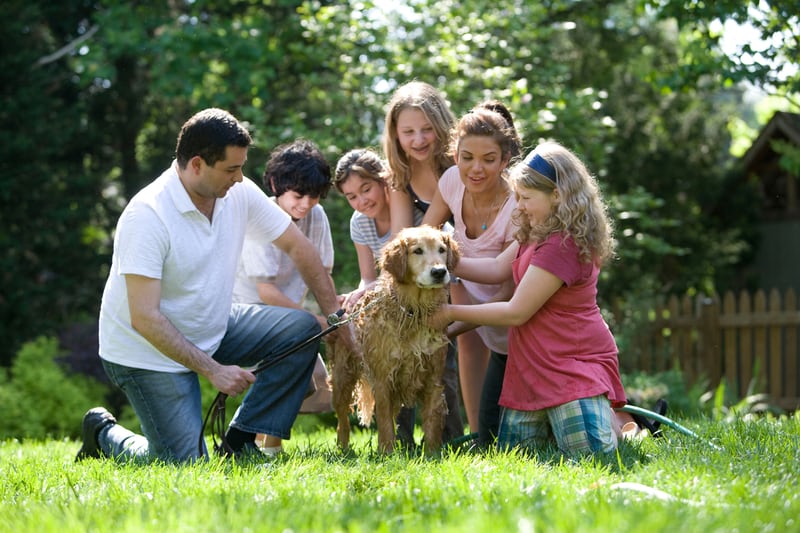Pooch power: preschool children benefit greatly from the presence of a family dog

Physical and emotional health is boosted for children who have a family dog that they regularly walk and play with, research from the Telethon Kids Institute has found.
Children aged between two and five years old who came from dog-owning households – and regularly went on family dog walks or actively played with their dogs – had a reduced likelihood of conduct and peer problems, as well as increased prosocial behaviours such as sharing and cooperating, compared to children without a dog, the research team found.
While lead researcher Associate Professor Hayley Christian and her team have previously identified that family pets may protect school-aged children – especially those with no siblings – from developing social-emotional problems, the latest study has found that these benefits apply to younger children also.
The more young children walked or played with their family dog, the more these pro-social behaviours were evident.
“We’re increasingly learning that pet ownership within families can have fantastic benefits for children’s physical and social development,” said Professor Christian said.
Researchers observed that children who played with their dog a minimum of three times per week or walked with their dog at least once per week had better social-emotional development.
Over 1,500 parents were surveyed as part of the study, with parents also completing the Strengths and Difficulties questionnaire, used to measure children’s social-emotional development.
Children from dog-owning households were 30–40 per cent less likely to have conduct or peer problems, had 23 per cent fewer total difficulties, and were 34 per cent more likely to have pro-social behaviours than children without a dog.
Within dog-owning households, family dog walking at least once per week and active play with the family dog three or more times per week increased the likelihood of preschoolers’ prosocial behaviour by up to 74 per cent, and reduced their total difficulties by 36 per cent.
The strength of the results came as a surprise to the research team.
“While we expected that dog ownership would provide some benefits for young children’s wellbeing, we were surprised that the mere presence of a family dog was associated with many positive behaviours and emotions,” Professor Christian said.
Although further research is needed to establish the exact mechanism by which dog ownership may benefit social and emotional benefit in young children, the team speculated that this could be attributed to the attachment between children and their dogs.
“Stronger attachments between children and their pets may be reflected in the amount of time spent playing and walking together, and this may promote social and emotional development,” the Professor added.
The findings add weight to the value of pet ownership in helping to combat physical inactivity and increasing sedentary behaviours in childhood.
“Given how important physical activity is to a child’s health and social and emotional development, we really need to make the most of any opportunity to get kids moving. Our research suggests family down ownership could be a valuable strategy in achieving this,” Professor Christian concluded.
The findings emerged from the Play Spaces and Environments for Children’s Physical Activity (PLAYCE) project, a three-year Healthway-funded study (2015–2018) which investigated early childhood education and care, home, and neighbourhood influences on preschoolers’ physical activity.
The sub-study on preschoolers and family dogs was funded by the Human-Animal Bond Research Institute (HABRI).
The paper, The relationship between dog ownership, dog play, family dog walking and preschooler social-emotional development: Findings from the PLAYCE observational study, can be read here.
Popular

Quality
Practice
Provider
Research
Workforce
Honouring the quiet magic of early childhood
2025-07-11 09:15:00
by Fiona Alston

Quality
Practice
Provider
Research
Taking a leap: Why risky play matters
2025-07-15 09:53:58
by Fiona Alston

Quality
Practice
Provider
Research
Brisbane’s youngest athletes get into the Olympic spirit at Bush Kindy event
2025-07-15 09:00:51
by Fiona Alston










